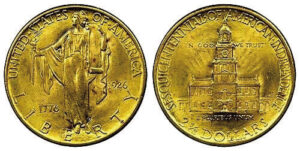A few fall planting reminders
By By Steve Strong / area horticulture extension agent
Oct. 8, 2003
Perfect weather conditions across East Mississippi are providing gardeners with an extended fall planting season this October.
Now is a great time to plant cool season vegetables, landscape shrubs, and annual flowerbed color, while temperatures are mild and light rains continue to provide free irrigation.
Most of the soils in our area are just right for digging or tilling with current soil moisture levels, and now is also a perfect time for soil testing and soil amending. Amendments may include additives like lime, compost or fertilizer nutrients, and different amounts may be required for individual planting areas.
New garden beds with a heavy clay soil (or the other extreme of a very sandy soil) can benefit from the addition of organic matter, and the source may be anything from store-bought compost to stockyard animal manure. Organic amendments improve the movement of water and air through the soil, and also provide nutrients to feed the microbial food chain around plant root systems.
Soil pH may need to be adjusted by adding lime to provide calcium and magnesium that act as anti-acid buffers in low pH soils. The majority of soil types in the Lauderdale County vicinity are acidic and do require periodic liming, but only soil testing can accurately measure the correct pH level for the crop you are trying to grow.
The recommended pH range could differ from 5.5 to grow centipede grass or spring-planted Irish potatoes (or azaleas), to 6.5 for St. Augustine grass and fall-planted carrots.
Soil testing at Mississippi State University for just $6 per pint-size sample can help pinpoint your pH problems and provide a detailed fertilizer program for everything from collard greens to daylilies.
October through April is an entire second growing season for southern gardeners, and now is the usual time for replacing faded summer annual flowers with pansies or other cool-season color. Ornamental cabbage, kale, and snapdragons are some great choices for fall color, but remember to leave enough bed space for winter-blooming bulbs like daffodils and tulips that will need to be planted in another couple of months.
Annual flowerbeds and vegetable gardens make need an extra nutrient boost this fall in the form of potassium. Other nutrients such a nitrogen, phosphate, and trace elements are required by most plants each growing season, however, the one element that seems deleted most from water-soaked summer soils is potassium (based on local soil test results).
Potash serves as a natural anti-freeze for plant roots during winter months, and is the primary nutrient needed for winterizing home lawns.
Other nutrients that may be specific for certain cool season plants include phosphate for bulbs (tablespoon of bone meal in the bottom of the planting hole for bloom boosting), and boron for cabbages and other crucifers (to prevent black rot on the inside).
Each county office of the MSU Extension Service has all the planting information you need to get your fall garden started, or you visit the university site online at www.msucares.com.
For folks within driving distance, don't forget about the Fall Garden and Flower Fest held Oct. 17 and 18 in Crystal Springs, a free event conducted year by the MAFES Truck Crops Experiment Station.
The last reminder for this week is, "Stop Pruning Already!"
Several homeowners and landscape maintenance companies in the area continue with an insane bushwhacking practice even into the fall months, sparking a flush of new tender growth on trees and shrubs that will surely get burned severely by frost this winter.
If you happen to spot one of these folks trying to kill their plants with ignorance and kindness, share this news article, or at least tell them to call the Extension Service.








